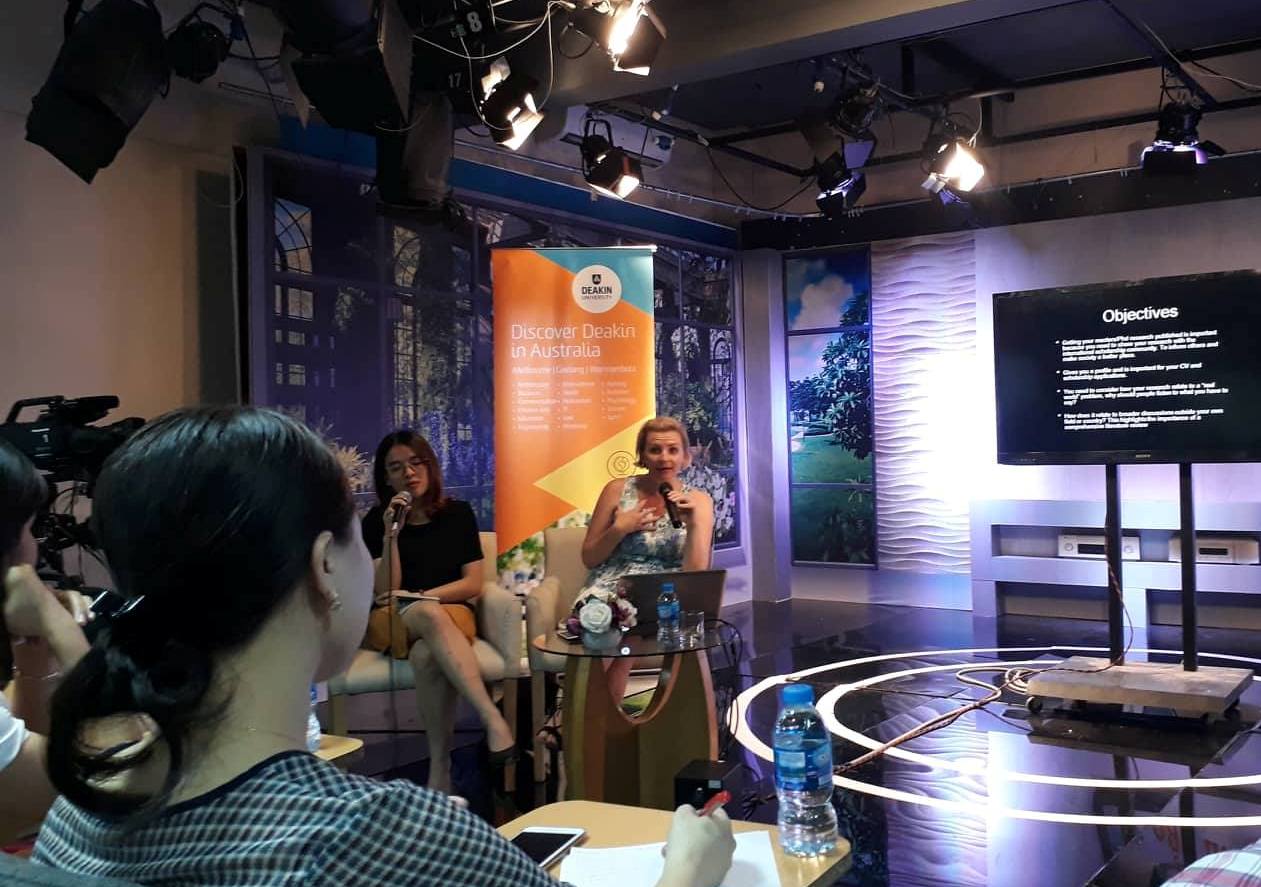Dr. Kristy Hess is currently a lecturer in Communication, Faculty of Arts and Education, Deakin University (Australia), and also the Deputy Editor-in-Chief of Digital Journalism. This is a young journal, only 6 years old, but it is one of the most well-known in the US and internationally.
However, she experienced setbacks in her early days submitting articles to international scientific journals. Before 2009, she had absolutely no publishing experience. At that time, when she wanted to publish an article related to her research field, she was ambitious and chose a world-renowned journal specializing in cultural studies to submit her article to. She worked diligently to write the article and waited for months for feedback from the journal's editorial board after submitting it. She was excited when she received an email from a member of the editorial board. She thought it was good news. However, upon reading the email, she received the following comment:The content of your article is unremarkable, and we cannot publish it.She cried and considered it unacceptable because she had put in so much effort but the results were terrible. However, she quickly regained her confidence to continue pursuing her dream. That first failure taught her a lesson: perseverance and continued effort. According to her, these are two essential qualities for achieving international publication.
Kristy Hess shared the following about the current state of articles about Vietnam in Digital Journalism magazine:When I look at the journal and its contents, it makes me feel that Vietnam is very close to my heart. I am saddened that not many Vietnamese scholars have articles in my journal. There are only 5 articles about Vietnam, but unfortunately, they are not by Vietnamese scholars."

Dr. Kristy Hess shared about her international publication at the studio of the Institute of Journalism and Communication Training.
Dr. Kristy Hess stated that in addition to perseverance and effort, other qualities are also needed.clarityResearchers need to know how clear their argument is. How well does the world understand who they are and what their field of research is? Why do we need to publish? A researcher who engages in publishing is participating in a larger conversation, making the world a better place:Researchers must always be aware that our work is not only relevant to ourselves, but also to domestic and international contexts. Many people think America is the center of the world, but that is not actually the case. When writing an article, we must consider what constitutes profound knowledge, who we are inspiring, what the target audience is, and whether we are using ancient or modern research methods."
To write an international essay according to Kristy Hess's method, we must have:international thinkingIt's crucial to consider yourself a researcher. Google provides information very quickly these days. Google is the place to find information about the field we're researching. If you don't already have an international scientific profile, you should think about it. Not having any international publications isn't the most important thing. The key is to think about international publication and strive to achieve it. Every researcher needs six keywords to define their research area. These keywords relate to the research topic and are what make the researcher unique and distinctive. For example, her six research keywords are: local media/news sustainability/community/culture/social order/power. The keywords need to be clear, concise, and easy to remember. Keywords help editors identify the author's research specialization, thereby determining the quality of the article.
Researchers should not initially seek out top-tier journals for publication, as that is a gamble; instead of searching a long list of journals, they should select only one to three that are closely related to their field of research. Kristy Hess emphasizes:Finding a journal is necessary, but you shouldn't aim for top-ranked journals, as rankings change constantly. A smaller journal can rise to a high ranking. Focus on journals that best suit your needs. Find the right journal using your research keywords.After being rejected by a leading journal, she sent the rejected article to a lower-ranked journal in Australia and was successful.
Researchers often skip this crucial step after finding a suitable journal: checking the journal's article list to see who has already published articles closely related to their research interests.
Many Master's and PhD students try to summarize their theses and dissertations in a single 7,000-word paper. This is actually too complicated. According to Kristy Hess, these individuals should focus on one research finding in their work, then expand on the literature and scope of the research. Australians call this method of breaking down the research problem "thinly sliced"In this way, from a thesis or dissertation, a researcher can aim for multiple articles or a book. Qualitative research articles need to be linked to a particular theory."
A researcher cannot write a paper in a day or two. When a paper is received, the editorial board needs at least two weeks to discuss it. Kristy Hess emphasized:You might receive a rejection email. You might be very disappointed, but don't give up on two fundamental principles: perseverance and effort. That's how I've grown from failure."
Author:Assoc. Prof. Dr. Tran Viet Nghia
Newer news
Older news